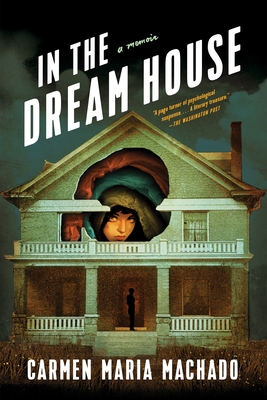
Review by: DeKeshia Horne
Machado’s ‘Dream House’ is a poetic memoir in which she shares the ugly truth about what it feels like to have someone move into your heart and destroy it. The book is a giant metaphor but is as real as it gets. She writes about the ups and (mostly) downs of the abusive relationship that she had with her ex-girlfriend in a small house that they shared pretty quickly after meeting. At first Machado opens up about the intensity of falling in love and how pleasurable it is to finally have someone that feels like home. Then she goes on detailing the intensity of the hurt she constantly felt because of that same person shortly after. Feeling trapped, she writes through it in the very same house.
There are moments in the book where she compares her situation to those that she thinks are worse. She talks about LGBT domestic abuse cases and how different representations harm the abused even more. The facts are eye-opening causing the book to be hard to read at times while also being too hard to put down.
It’s hauntingly good book and a book that you’ll never forget.
BOOK DETAILS | BUY
 In the Dream House is Carmen Maria Machado’s engrossing and wildly innovative account of a relationship gone bad, and a bold dissection of the mechanisms and cultural representations of psychological abuse. Tracing the full arc of a harrowing relationship with a charismatic but volatile woman, Machado struggles to make sense of how what happened to her shaped the person she was becoming.
In the Dream House is Carmen Maria Machado’s engrossing and wildly innovative account of a relationship gone bad, and a bold dissection of the mechanisms and cultural representations of psychological abuse. Tracing the full arc of a harrowing relationship with a charismatic but volatile woman, Machado struggles to make sense of how what happened to her shaped the person she was becoming.
And it’s that struggle that gives the book its original structure: each chapter is driven by its own narrative trope–the haunted house, erotica, the bildungsroman–through which Machado holds the events up to the light and examines them from different angles. She looks back at her religious adolescence, unpacks the stereotype of lesbian relationships as safe and utopian, and widens the view with essayistic explorations of the history and reality of abuse in queer relationships.
Machado’s dire narrative is leavened with her characteristic wit, playfulness, and openness to inquiry. She casts a critical eye over legal proceedings, fairy tales, Star Trek, and Disney villains, as well as iconic works of film and fiction. The result is a wrenching, riveting book that explodes our ideas about what a memoir can do and be.
